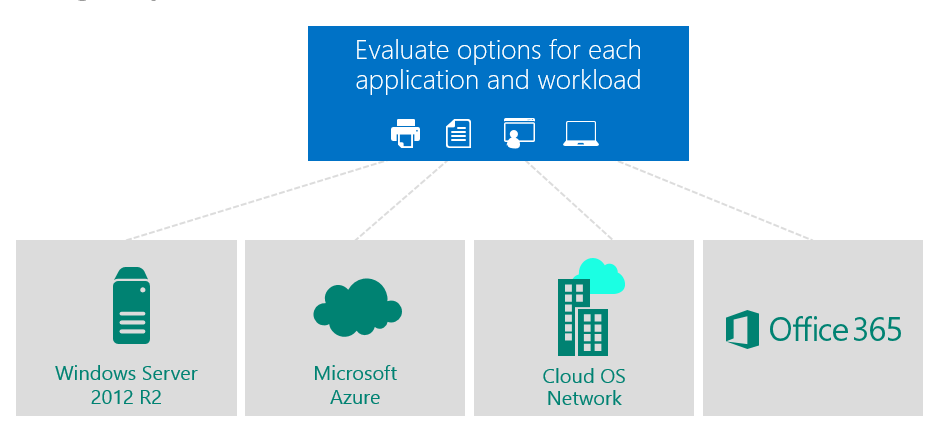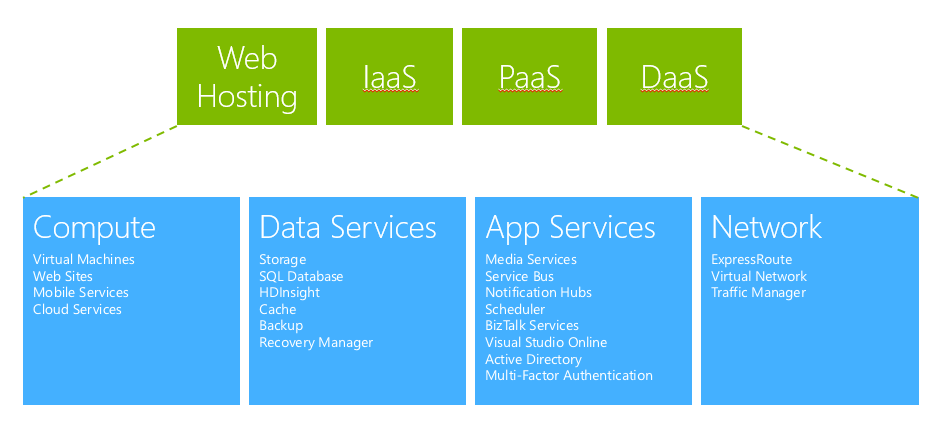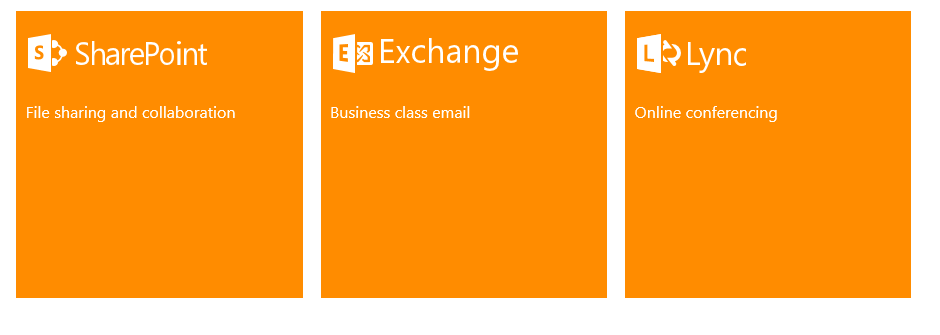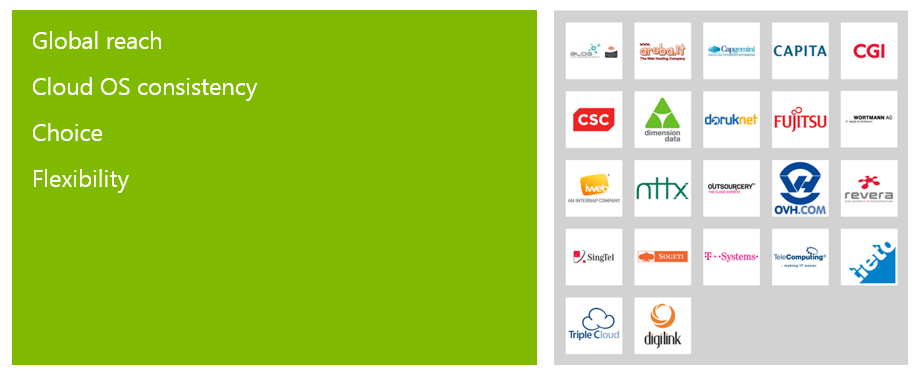Windows Server 2003 End Of Support Part 3b - Target Your Destination - Microsoft Azure, Cloud OS and Office 365
In the last post I covered some of the capabilities of Windows Server 2012 R2, in this post I'll focus on some of the capabilities that Microsoft Azure provides.
Microsoft Azure also offers some key benefits to consider. Without additional capital expenditures, you can have the IT capacity you need when you need it. Your costs move to a predictable and steady (and likely lower cost) operational expenses model instead of to an unstable capital expenses model.
Office 365 provides integrated and rapid deployment or migration and easy management of Exchange, SharePoint, and Lync. This will often be the quickest and most direct route to migration from older versions of these applications. These can be used as the platform for other services as well, including OneDrive For Business, Delve, and Power BI, depending on what your customer requirements are.
While Cloud OS scenarios tend to target larger organisations, some of the scenarios that are enabled may be of value to you.
The Cloud OS Network is a worldwide consortium of cloud service providers who have embraced the Cloud OS vision. These organizations offer solutions based on the Microsoft Cloud Platform designed to meet your business needs.
Members of this network combine industry-leading Microsoft technology with their hosting and geographic expertise to provide you full flexibility and choice for your hybrid datacenter solution.
Combined, these partners serve over 90 markets around the world, operate over 2.4 million servers in more than 425 datacenters, and serve over 3 million customers every day.
You get three key benefits when consuming services from a Microsoft Cloud OS Network partner:
Choice: You now have even more choice in deploying your hybrid datacenter environments based on the Microsoft Cloud Platform: in your datacenter, in Microsoft Azure, or now through a network of leading service provider partners.
Flexibility: The Microsoft Cloud OS Network program extends hybrid solutions through cloud service providers, giving you the flexibility to bridge your on-premises investments with cloud-based deployments. This includes the ability to innovate faster, deliver new services and capabilities, improve employee productivity, and lower costs.
Consistency: The Microsoft Cloud OS Network uniquely enables one consistent platform to support your hosted datacenter and application needs in an environment built on the Microsoft Cloud Platform (that includes Windows Server with Hyper-V, System Center, and Microsoft Azure Pack).
As cloud adoption accelerates and competition increases, the ability for cloud service providers to differentiate is paramount. By taking advantage of the Microsoft Cloud Platform, our partners can focus on building value-add and differentiated services, taking them to market faster and solving the hybrid cloud needs of their customers.
In upcoming posts I will discuss how these different scenarios can work together to provide you different solutions for different customers.



